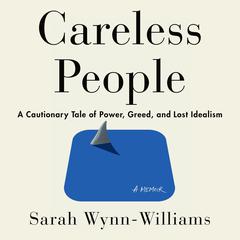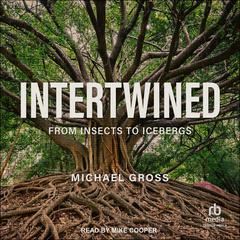 Play Audiobook Sample
Play Audiobook Sample
Civilization and Its Discontents Audiobook
 Play Audiobook Sample
Play Audiobook Sample
Quick Stats About this Audiobook
Total Audiobook Chapters:
Longest Chapter Length:
Shortest Chapter Length:
Average Chapter Length:
Audiobooks by this Author:
Publisher Description
First published in 1930, Civilization and Its Discontents is one of the most influential works of pioneering psychologist Sigmund Freud. Focusing on the tension between the primitive drives of the individual and the demands of civilization for order and conformity, Freud draws upon his psychoanalytic theories to explain the fundamental structures, conflicts, and consequences of society. Written in the aftermath of World War I, Civilization and Its Discontents advances the idea that humans' instinctive desires—violent urges and sexual drives—create the need for law and structure, which, when implemented, create constant feelings of discontent. A seminal work in psychology, Civilization and Its Discontents has sparked debate since its publication and continues to be widely read today. This edition is the translation by James Strachey.
Download and start listening now!
"for better or worse, freud in the 21st century is obviously a very different reading experience from freud in the early 20th century. take or leave his theories as you will, the lucidity and forcefulness of his prose - felt through translation, admittedly, in my case - still make him a great read."
— meeners (4 out of 5 stars)
Quotes
-
“This, written in 1930, on the eve of destruction as it were, is a summary of Freud’s beliefs, the potted essence of his system as applied to the broad picture…[Freud was] a first-rate essayist. When away from the couch or the consulting room, he was as penetrating and beguiling a thinker as Montaigne.”
— Guardian (London)
Civilization and Its Discontents Listener Reviews
-
" Interesting, but more for its historical value than any new insights. "
— Joe, 2/20/2014 -
" Freud's observations and theories concerning the root of man's self-destructive nature. Not for those of low intellect. "
— Marrick, 2/11/2014 -
" This served as a fascinating insight into Freud's work outside on individual psychoanalysis. Clearly a brilliantly nuanced mind Freud sheds a bright and unforgiving light on the human condition. One of the few books that truly to be read by the widest possible audience. A geb=nuine masterwork. "
— Alasdair, 2/8/2014 -
" My favourite reading by Sigmund Freud. It goes beyond the Oedipal Complex that most people assume as the be all, end all of Freud. "
— n, 2/4/2014 -
" Required for a history class I took. Interesting but not an easy read. Freud's theory that we are willing to suffer frustration of our base desires for the protection of civilization makes sense but, like a lot of Freud, seems too pat. "
— Ted, 1/30/2014 -
" The first book I despised. But Freud's classic assault on religion did make me think. "
— Jason, 1/23/2014 -
" One of the most profoundly insightful books on human nature I've ever read. "
— Jason, 1/20/2014 -
" I read this book right after I read T.C. Boyle's 'Inner Circle' , which is all about sexual possibility whereas this one is all about sexual fatalism. The low rating reflects my disappointment in picking a follow-up read more than anything else. It's an incredibly cynical book, and given the surrounding world in which it was written that cynicism seems justified. "
— Isaac, 1/15/2014 -
" Brilliant. Freud may have been wrong about many things, but this short book is chock full of some of the most imaginative thinking about the human condition that I have read in a long time. It's a pleasure to peek into the mind of a genius. "
— Laura, 1/14/2014 -
" This book could have been condensed down to about 2 paragraphs. Atleast he apologizes in the end for taking such an indirect route to say something really simple. "
— Devin, 12/20/2013 -
" Freud as philosopher. A brilliant look into human nature and the origins of human misery. "
— Tommy, 12/18/2013
About Sigmund Freud
Sigmund Freud (1856–1939) was an Austrian psychiatrist who founded the psychoanalytic school of psychology. Freud is best known for his theories of the unconscious mind and the defense mechanism of repression and for creating the clinical practice of psychoanalysis for curing psychopathology through dialogue between a patient and a psychoanalyst.
About Steven Crossley
Steven Crossley, a graduate of the Royal Academy of Dramatic Art in London, has built a career on both sides of the Atlantic as an actor and audiobook narrator, for which he has won more than a dozen AudioFile Earphones Awards and been a nominee for the prestigious Audie Award. He is a member of the internationally renowned theater company Complicite and has appeared in numerous theater, television, film, and radio dramas.



![The Ego and the Id. Beyond the Pleasure Principle [«Я» и «ОНО». По ту сторону принципа наслаждения] Audibook, by Sigmund Freud](https://images.audiobookstore.com/j/a/jair/jair-square-240.webp)


















![Civilization and Its Discontents [Неудовлетворенность культурой] Audibook, by Sigmund Freud](https://images.audiobookstore.com/j/a/jai8/jai8-square-240.webp)



















